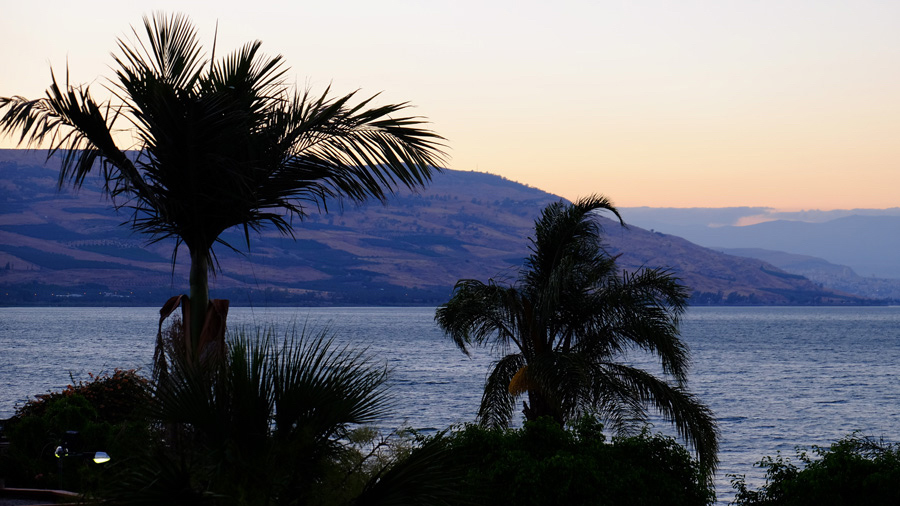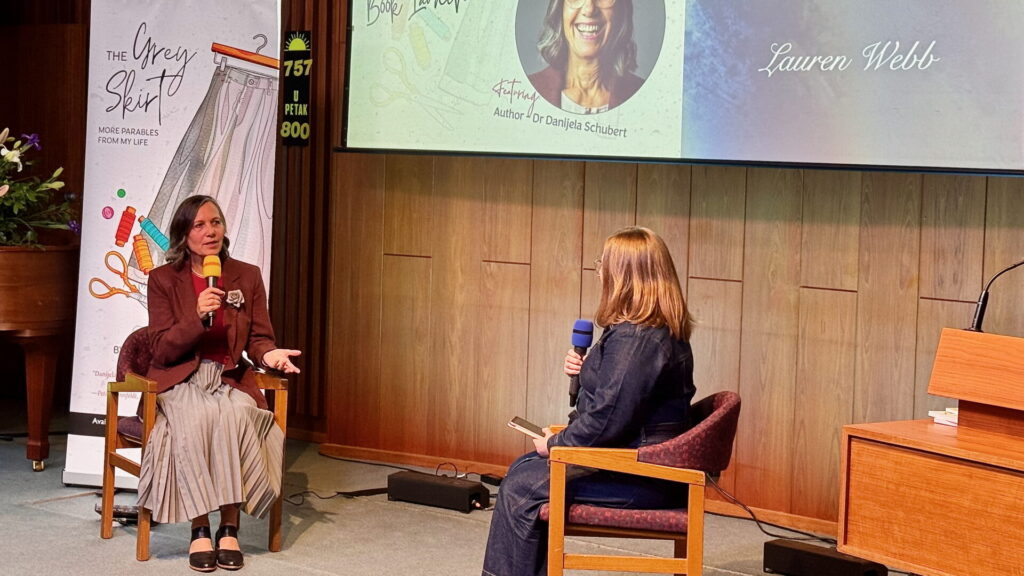On a summer’s evening in late June, 2015, our tour group was gathered on the shore of Lake Galilee. It was one of those evenings in which it is a joy to be outdoors as the warm breeze does just enough to take away the heat of the day that has passed.
It had been a day filled with Jesus and those places that, for many of us, had only been dots on a map in the back of our Bibles. We had been out on the lake, climbed the hillside to the possible site of the Sermon on the Mount, visited old Capernaum and walked on the beach where Jesus cooked breakfast for His disciples after His resurrection. Their evocative but distant-sounding names linked to some of our favourite stories—stories we had grown up with and that had shaped our lives—now had our own memories added to them.
As the warm darkness settled around us, the gentle rippling on the lake’s surface caused the reflected lights from Tiberias to dance quietly and the palm trees rustled above us as we reflected on the highlights and insights of the day. One of the oldest members of our group led worship that evening, drawing on his lifelong experience of following Jesus and connecting the Jesus he knew with what we had each seen, heard and felt that day. It was a moment to be savoured, remembered and referenced. But only more recently did I notice another important aspect to our conversation that evening.
In reflecting on the Jesus who made the villages and hillsides areas around the lake His home, our worship speaker drew a passing comparison between the attitude of Jesus, the way of Jesus, and the nascent political campaigns at the beginning of the United States election cycle that would become the dominant news story of 2016 and beyond, even for those of us from other nations. This has been a valuable foundational insight as I—and so many others—have wondered how to think about and respond to the fractious political realities and debates that have affected us in many ways since that time. [pullquote]
In a fascinating little book, Christ, Justice and Peace: Toward a Theology of the State, theologian Eberhart Jüngel reflected on the 50th anniversary of the “Barmen Declaration,” a statement by Christian theologians regarding the Christian church’s social and political responsibilities, drafted in the 1930s context of growing German nationalism and its political expressions. Referencing statements such as those that begin Romans 13 about the God-appointedness of political leaders, Jüngel rejected the notion that the church should seek power for itself, but urged that neither should it be silent in relation to what political power is for: “Responsibility in the realm of the political implies a being-drawn-into-responsibility by God, who (with the promise of his coming kingdom, the instruction of his commandments and the establishing of his justice) provides human insight with the criteria by which political activity is to be measured.”
Which takes me back to that quiet evening by the lake and the Jesus who met us—and all of human history—there. What better criteria to measure our political leaders, our society’s attitudes, our human projects than the “constitution” of His kingdom—the radical manifesto of blessing, faithfulness, reordered priorities political reversal, social disruption and community renewal that we know as the Sermon on the Mount (see Matthew 5–7).
As we did that evening by the lake, try re-reading Jesus’ foundational sermon as a contrast to and critique of our political leadership. If you’re feeling courageous, do it in public. Our call is to seek first the kingdom of God and His righteousness/justice, to be humble peacemakers, to love our enemies and to build our lives—together, personally and politically—on the rock of Jesus and His teaching. Jesus is different—and we are called to be voices and activists for that difference.






